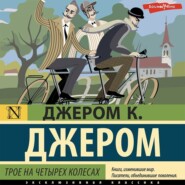По всем вопросам обращайтесь на: info@litportal.ru
(©) 2003-2024.
✖
The Observations of Henry
Настройки чтения
Размер шрифта
Высота строк
Поля
“Well,” I says, “you know your own business, but it seems to me she wouldn’t have much way to stand in if it hadn’t been for you.”
“Oh, that’s all right,” he says. “I’m fond enough of the gell, but I shan’t clamour for a tombstone with wiolets, even if she ain’t ever Mrs. Capt’n Kit. Business is business; and I ain’t going to queer ‘er pitch for ‘er.”
I’ve often wondered what she’d a’ said, if he’d up and put the case to her plain, for she was a good sort; but, naturally enough, her head was a bit swelled, and she’d read so much rot about herself in the papers that she’d got at last to half believe some of it. The thought of her connection with the well-known judge seemed to hamper her at times, and she wasn’t quite so chummy with “Kipper” as used to be the case in the Mile-End Road days, and he wasn’t the sort as is slow to see a thing.
One day when he was having lunch by himself, and I was waiting on him, he says, raising his glass to his lips, “Well, ‘Enery, here’s luck to yer! I won’t be seeing you agen for some time.”
“Oh,” I says. “What’s up now?”
“I am,” he says, “or rather my time is. I’m off to Africa.”
“Oh,” I says, “and what about – ”
“That’s all right,” he interrupts. “I’ve fixed up that – a treat. Truth, that’s why I’m going.”
I thought at first he meant she was going with him.
“No,” he says, “she’s going to be the Duchess of Ridingshire with the kind consent o’ the kid I spoke about. If not, she’ll be the Marchioness of Appleford. ‘E’s doing the square thing. There’s going to be a quiet marriage to-morrow at the Registry Office, and then I’m off.”
“What need for you to go?” I says.
“No need,” he says; “it’s a fancy o’ mine. You see, me gone, there’s nothing to ‘amper ‘er – nothing to interfere with ‘er settling down as a quiet, respectable toff. With a ‘alf-brother, who’s always got to be spry with some fake about ‘is lineage and ‘is ancestral estates, and who drops ‘is ‘h’s,’ complications are sooner or later bound to a-rise. Me out of it – everything’s simple. Savey?”
Well, that’s just how it happened. Of course, there was a big row when the family heard of it, and a smart lawyer was put up to try and undo the thing. No expense was spared, you bet; but it was all no go. Nothing could be found out against her. She just sat tight and said nothing. So the thing had to stand. They went and lived quietly in the country and abroad for a year or two, and then folks forgot a bit, and they came back to London. I often used to see her name in print, and then the papers always said as how she was charming and graceful and beautiful, so I suppose the family had made up its mind to get used to her.
One evening in she comes to the Savoy. My wife put me up to getting that job, and a good job it is, mind you, when you know your way about. I’d never have had the cheek to try for it, if it hadn’t been for the missis. She’s a clever one – she is. I did a good day’s work when I married her.
“You shave off that moustache of yours – it ain’t an ornament,” she says to me, “and chance it. Don’t get attempting the lingo. Keep to the broken English, and put in a shrug or two. You can manage that all right.”
I followed her tip. Of course the manager saw through me, but I got in a “Oui, monsieur” now and again, and they, being short handed at the time, could not afford to be strict, I suppose. Anyhow I got took on, and there I stopped for the whole season, and that was the making of me.
Well, as I was saying, in she comes to the supper rooms, and toffy enough she looked in her diamonds and furs, and as for haughtiness there wasn’t a born Marchioness she couldn’t have given points to. She comes straight up to my table and sits down. Her husband was with her, but he didn’t seem to have much to say, except to repeat her orders. Of course I looked as if I’d never set eyes on her before in all my life, though all the time she was a-pecking at the mayonnaise and a-sipping at the Giessler, I was thinking of the coffee-shop and of the ninepenny haddick and the pint of cocoa.
“Go and fetch my cloak,” she says to him after a while. “I am cold.”
And up he gets and goes out.
She never moved her head, and spoke as though she was merely giving me some order, and I stands behind her chair, respectful like, and answers according to the same tip.
“Ever hear from ‘Kipper’?” she says to me.
“I have had one or two letters from him, your ladyship,” I answers.
“Oh, stow that,” she says. “I am sick of ‘your ladyship.’ Talk English; I don’t hear much of it. How’s he getting on?”
“Seems to be doing himself well,” I says. “He’s started an hotel, and is regular raking it in, he tells me.”
“Wish I was behind the bar with him!” says she.
“Why, don’t it work then?” I asks.
“It’s just like a funeral with the corpse left out,” says she. “Serves me jolly well right for being a fool!”
The Marquis, he comes back with her cloak at that moment, and I says: “Certainement, madame,” and gets clear.
I often used to see her there, and when a chance occurred she would talk to me. It seemed to be a relief to her to use her own tongue, but it made me nervous at times for fear someone would hear her.
Then one day I got a letter from “Kipper” to say he was over for a holiday and was stopping at Morley’s, and asking me to look him up.
He had not changed much except to get a bit fatter and more prosperous-looking. Of course, we talked about her ladyship, and I told him what she said.
“Rum things, women,” he says; “never know their own minds.”
“Oh, they know them all right when they get there,” I says. “How could she tell what being a Marchioness was like till she’d tried it?”
“Pity,” he says, musing like. “I reckoned it the very thing she’d tumble to. I only come over to get a sight of ‘er, and to satisfy myself as she was getting along all right. Seems I’d better a’ stopped away.”
“You ain’t ever thought of marrying yourself?” I asks.
“Yes, I have,” he says. “It’s slow for a man over thirty with no wife and kids to bustle him, you take it from me, and I ain’t the talent for the Don Juan fake.”
“You’re like me,” I says, “a day’s work, and then a pipe by your own fireside with your slippers on. That’s my swarry. You’ll find someone as will suit you before long.”
“No I shan’t,” says he. “I’ve come across a few as might, if it ‘adn’t been for ‘er. It’s like the toffs as come out our way. They’ve been brought up on ‘ris de veau a la financier,’ and sich like, and it just spoils ‘em for the bacon and greens.”
I give her the office the next time I see her, and they met accidental like in Kensington Gardens early one morning. What they said to one another I don’t know, for he sailed that same evening, and, it being the end of the season, I didn’t see her ladyship again for a long while.
When I did it was at the Hotel Bristol in Paris, and she was in widow’s weeds, the Marquis having died eight months before. He never dropped into that dukedom, the kid turning out healthier than was expected, and hanging on; so she was still only a Marchioness, and her fortune, though tidy, was nothing very big – not as that class reckons. By luck I was told to wait on her, she having asked for someone as could speak English. She seemed glad to see me and to talk to me.
“Well,” I says, “I suppose you’ll be bossing that bar in Capetown now before long?”
“Talk sense,” she answers. “How can the Marchioness of Appleford marry a hotel keeper?”
“Why not,” I says, “if she fancies him? What’s the good of being a Marchioness if you can’t do what you like?”
“That’s just it,” she snaps out; “you can’t. It would not be doing the straight thing by the family. No,” she says, “I’ve spent their money, and I’m spending it now. They don’t love me, but they shan’t say as I have disgraced them. They’ve got their feelings same as I’ve got mine.”
“Why not chuck the money?” I says. “They’ll be glad enough to get it back,” they being a poor lot, as I heard her say.
“How can I?” she says. “It’s a life interest. As long as I live I’ve got to have it, and as long as I live I’ve got to remain the Marchioness of Appleford.”
She finishes her soup, and pushes the plate away from her. “As long as I live,” she says, talking to herself.
“By Jove!” she says, starting up “why not?”
“Why not what?” I says.
“Nothing,” she answers. “Get me an African telegraph form, and be quick about it!”

















